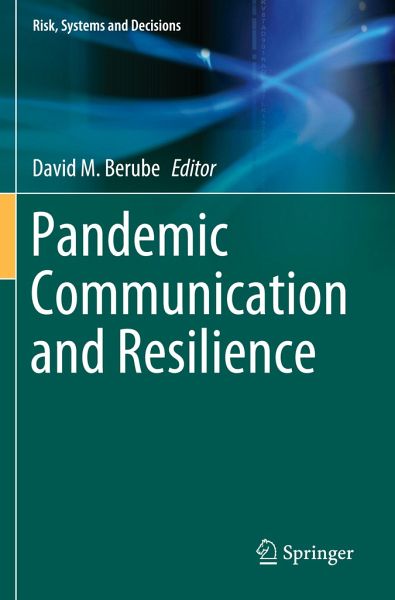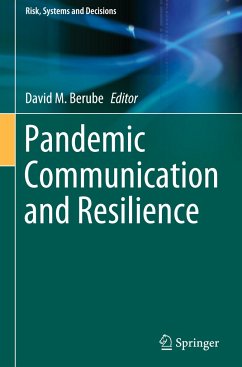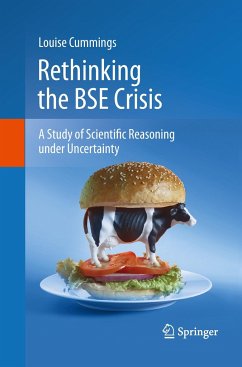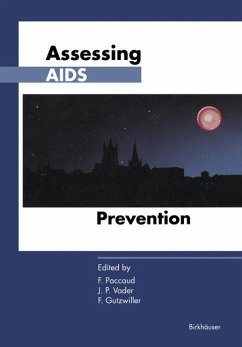
Pandemic Communication and Resilience
Versandkostenfrei!
Versandfertig in 6-10 Tagen
98,99 €
inkl. MwSt.

PAYBACK Punkte
49 °P sammeln!
This book examines how we design and deliver health communication messages relating to outbreaks, epidemics, and pandemics. We have experienced major changes to how the public receives and searches for information about health crises over the last twelve decades with the ongoing shift from text/broadcast-based to digital messaging and social media. Both health theories and practices are examined as it applies to testing, tracking, hoarding, therapeutics, and vaccines with case studies. Challenges to communicate about health to diverse audiences (including the science illiterate) and across (bo...
This book examines how we design and deliver health communication messages relating to outbreaks, epidemics, and pandemics. We have experienced major changes to how the public receives and searches for information about health crises over the last twelve decades with the ongoing shift from text/broadcast-based to digital messaging and social media. Both health theories and practices are examined as it applies to testing, tracking, hoarding, therapeutics, and vaccines with case studies. Challenges to communicate about health to diverse audiences (including the science illiterate) and across (both Western and developing economies) have been complicated by politics, norms and mores, personal heuristics, and biases, such as mortality salience, news avoidance, and quarantine fatigue. Issues of economic development and land use, trade and transportation, and even climate change have increased the exposure of human populations to infectious diseases making risk and resilience more pressing.
The book has been designed to support health communicators and public health management professionals, students, and interested stakeholders and university libraries.
The book has been designed to support health communicators and public health management professionals, students, and interested stakeholders and university libraries.












